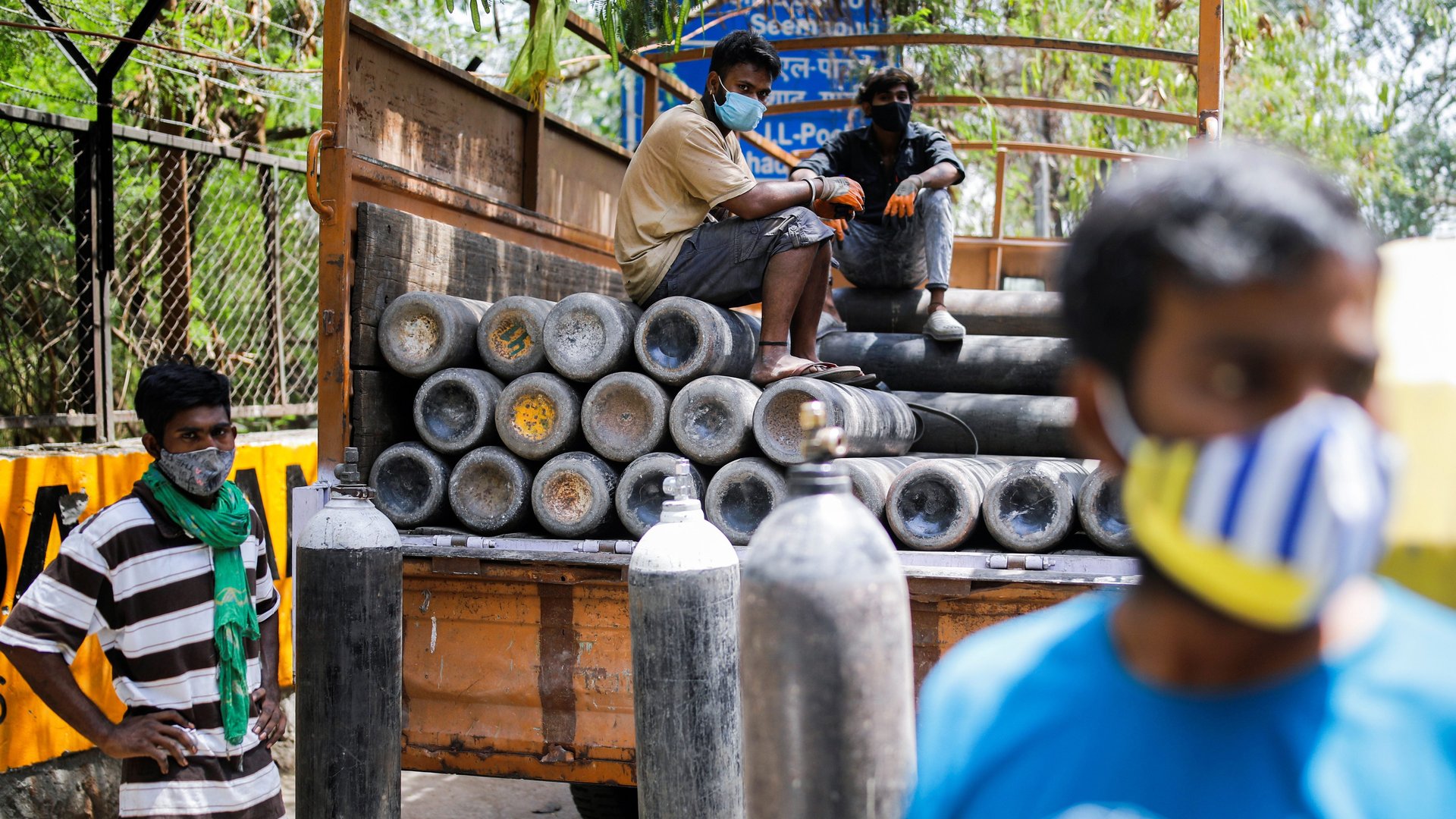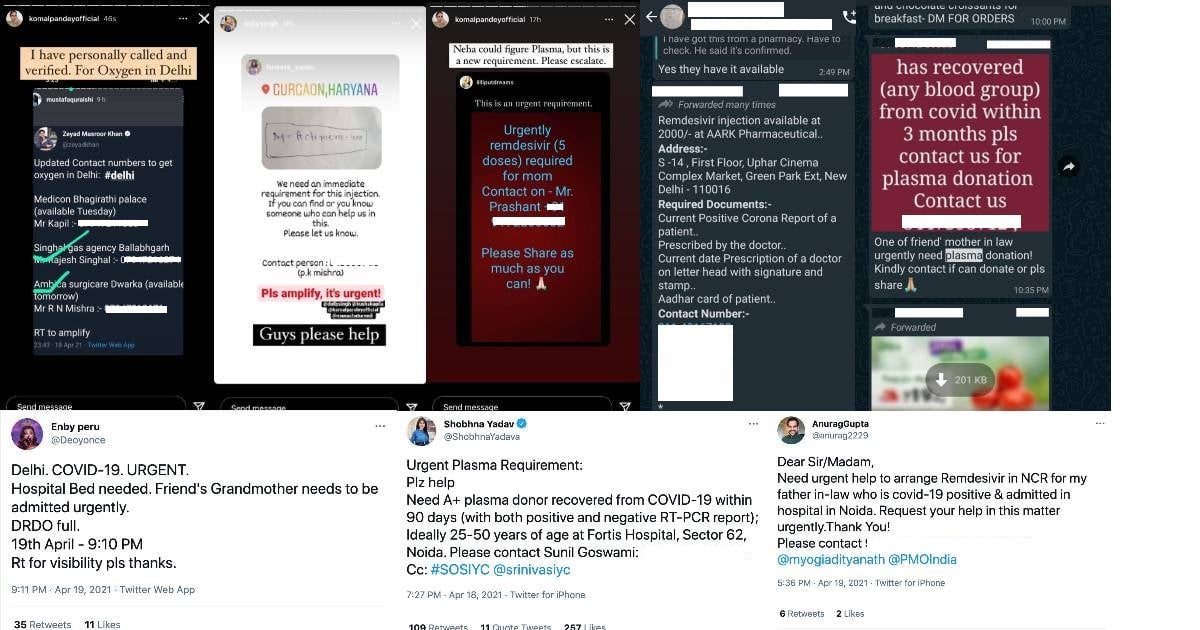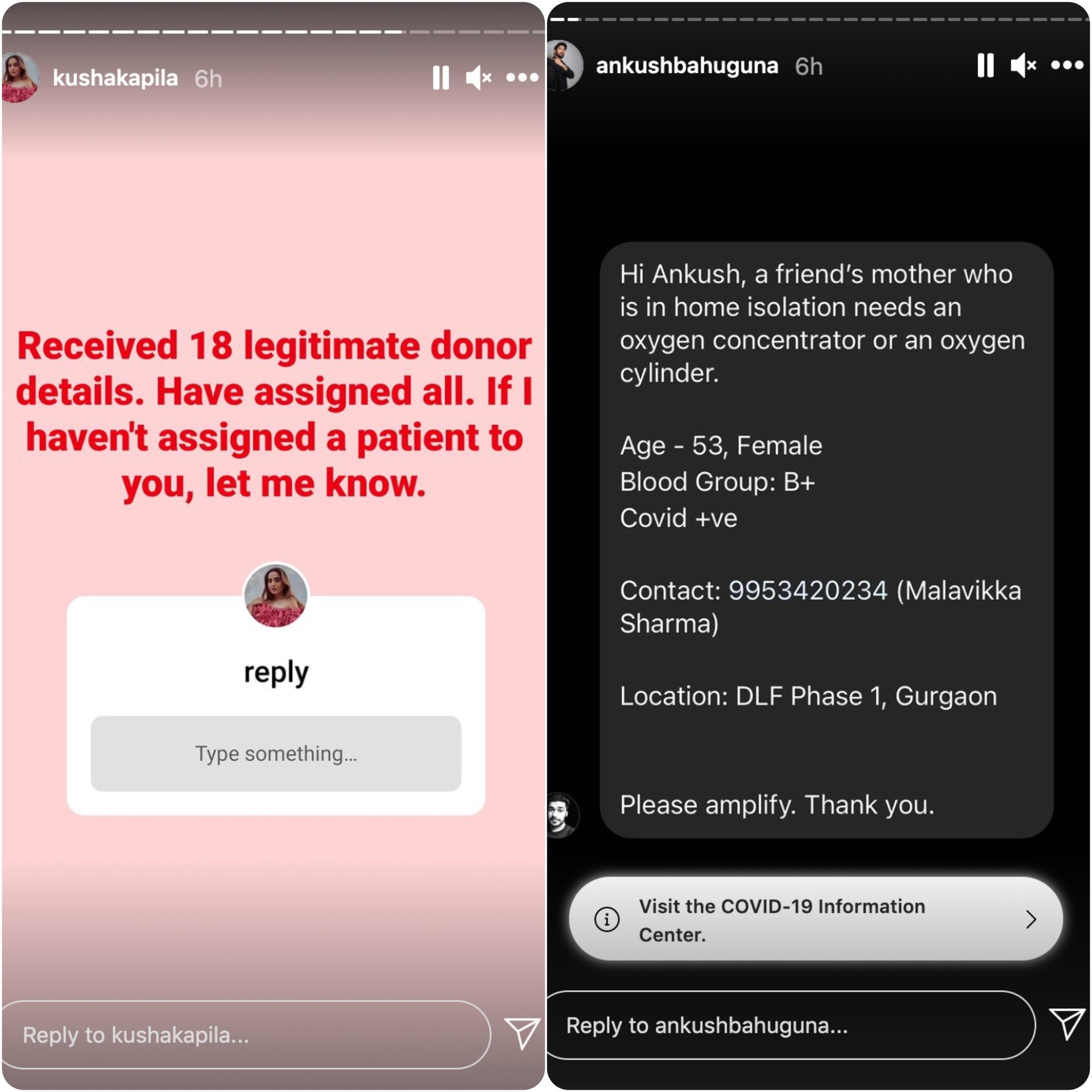Social media is a resource gold mine for Covid-battered Indians—for better or for worse
As India battles its second—and more fatal—wave of Covid-19, social media in the country has become a megaphone for those in distress.


As India battles its second—and more fatal—wave of Covid-19, social media in the country has become a megaphone for those in distress.
For around two weeks now, thousands of Indians on Twitter, Instagram, Facebook, and WhatsApp have been in a frantic hunt for hospital beds, oxygen cylinders, and medicines. From regular people to celebrities, all social media users have sprung into action to help out those in need. In many cases, these appeals have possibly saved lives.

In fact, in the middle of the crisis, even dating app Tinder has proved useful in connecting the needy with the helpful.
On April 19, India reported over 273,00 new cases, which is nearly three times worse than the peak of its first wave back in September 2020.
This massive outbreak has overwhelmed the healthcare system across India. Burdened hospitals have been turning Covid-19 patients away, and several states have reported shortages of oxygen cylinders. Medicines like Remdesivir, Favipravir, and Fabiflu are in short supply. Meanwhile, several people are scrambling for plasma donors.
Social media influencers like Kusha Kapila, who has over 1.6 million Instagram followers, and Ankush Bahuguna, who is followed by 688,000 people, among others, have been playing good samaritans, stepping up to amplify messages and connect people to leads. Bollywood actor Sonu Sood, who arranged buses to take migrant workers home during the lockdown last May, has sprung into action once again, arranging hospital beds and medicines.

“You can argue there are certain hoaxes and fake messages, that’s fine. For genuine people, social media is the best way to get a huge reach at a rapid pace right now. The network effect brings people in need and people ready to help together,” said Ankur Bisen, senior vice-president of retail and consumer products at Technopak Advisors. “Plus, you can articulate on social media with graphics. People are sharing spreadsheets with oxygen supplies, lists of available hospital beds, and more.” Some such spreadsheets even fold in resources for home care and meal deliveries.
According to Bisen, “the advantages far outweigh the cons.” However, not everyone is of the same opinion.
India’s social media Covid-19 battle
Critics argue that while these platforms help mobilise in an emergency, the overuse is turning them into double-edge swords.
Information is being disseminated “by people who do not have the authority to speak on the topic,” said Ami Shah, managing director and digital lead at Zandra Healthcare. “I’ve seen a lot of influencers engaging in amplifying messages regarding the need for plasma, remdesivir, etc. It’s just adding to the panic.” Research shows plasma therapies and various drugs like remdesivir are not effective in many cases.
The influx of information is adversely affecting the mental health of not just Covid-19 patients and their families but also everyone who reads or sees them. “People are more stressed and depressed because of the news floating constantly. I haven’t seen any group that doesn’t have a Covid discussion. That’s not too good from an emotional wellness perspective,” said Shah.
Moreover, managing the influx of information is getting hard for organisations, too. Blood Donors India, one of the largest such groups with over a million Twitter followers, has been struggling to address queries because they’ve been pouring in in haphazard ways.
The need of the hour is to build specific, verified repositories, experts say. Media personnel, government ministries, local officials, and NGOs should be making use of social media to spread accurate information. The general public, though, should do their homework before blindly sharing posts.